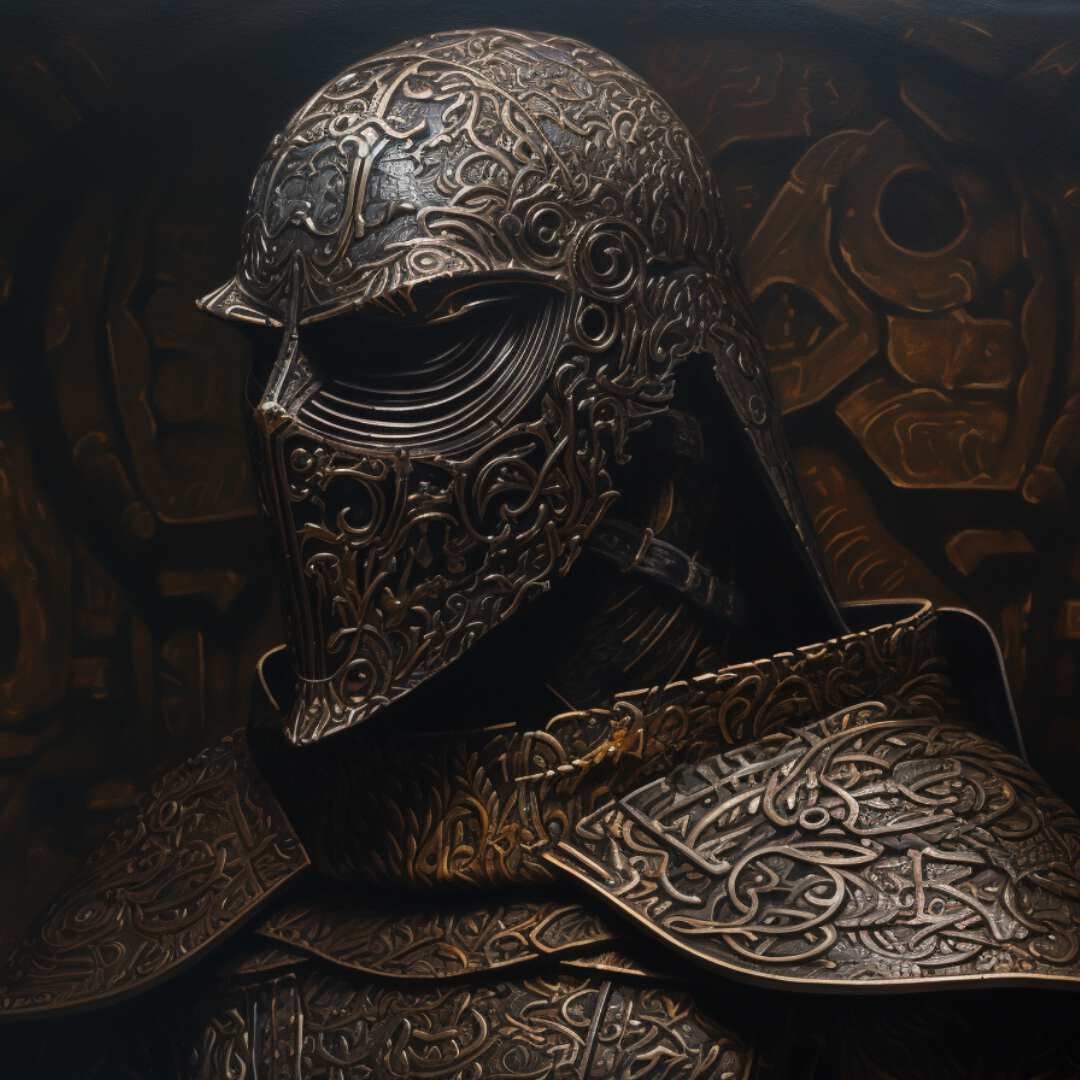11 Examples Of Unfair Situations In Life That You Should Accept
Table of Contents Show
In life, the stage is seldom set equally for all players. The world, in its infinite wisdom, or perhaps, in its cruel jest, does not distribute its gifts evenly. This is the harsh reality, the bitter pill that many find hard to swallow - the inevitability of unfairness.
Life, in its essence, is a game of chance, a lottery where the tickets are handed out at birth. Some are born with silver spoons, while others find themselves in the throes of poverty. Some are blessed with the gift of health and beauty, while others bear the burden of illness and unattractiveness. The scales of fortune are not balanced, and they never have been.
This is not a comforting thought, nor is it intended to be. It is a reminder of the world's inherent imbalance, a call to arms for those who find themselves on the losing end of this cosmic gamble. For it is not the hand that one is dealt, but how one plays it, that determines the course of one's life.
Hence, let us explore the ways in which life is unfair, not to wallow in self-pity, but to arm ourselves with knowledge, to strategize, to plan, and ultimately, to win. For in the end, it is not the fairness of the game that matters, but the skill of the player.
Here are Invisible Man’s 11 examples of life's inequities:
1. Born into Poverty
The circumstances of our birth, a factor entirely beyond our control, often set the stage for the trajectory of our lives. One of the most profound and yet overlooked aspects of this is the socioeconomic status we are born into. Poverty, a condition millions are born into worldwide, is an unseen handicap that hinders individuals from reaching their full potential.
The World Bank data reveals that nearly 10% of the world's population lives in extreme poverty, surviving on less than $1.90 a day. This is not just a statistic; it's a reality that shapes the lives of countless individuals. The effects of poverty are far-reaching, impacting not just the individual's economic status but also their health, education, and overall quality of life.
Children born into poverty are often trapped in a cycle that is incredibly difficult to break free from. They are more likely to suffer from malnutrition, have limited access to education and healthcare, and are more prone to engage in child labor. These factors significantly limit their opportunities for upward mobility, perpetuating the cycle of poverty for generations.
2. The Lottery of Genetics: Beauty, Health, and Intelligence
In addition to the socioeconomic lottery, we are also subject to the genetic lottery at birth. Our genetic makeup, which we have no control over, can significantly influence our lives. It can dictate our physical appearance, our health, and even our intelligence.
The world we live in often places a high value on physical beauty. Studies have shown that attractive individuals are more likely to be perceived as competent, intelligent, and healthy. They are often given preferential treatment in social and professional settings. This 'beauty bias' can lead to significant disparities in opportunities and outcomes for individuals based on their physical appearance, a factor they had no control over.
Similarly, our health and intelligence are significantly influenced by our genetics. Individuals born with genetic predispositions to certain diseases may have to navigate life with an added layer of complexity and hardship. On the other hand, those born with genes that contribute to higher intelligence may find doors opening for them that remain closed to others.
3. Nepotism and Favoritism
Nepotism and favoritism are the unspoken rules of the game, the hidden codes that govern the distribution of opportunities. They are the invisible hands that guide the course of our lives, often determining who gets what, when, and how. It's a game of connections, where the right surname or the right handshake can open doors that remain closed to others.
In the world of business, for instance, family ties often dictate who gets the corner office. According to a study by the Family Firm Institute, about 70% of all businesses worldwide are family-owned, and these businesses contribute to over 50% of the global GDP. This is not a coincidence. Think for a moment who would be favored above who in a family run business, let alone any other type of business.
4. Prejudice and Discrimination
Stereotypes are the invisible chains that bind us, the silent voices that dictate our actions. They are the lenses through which we view the world, often coloring our perceptions and influencing our decisions. Prejudice and discrimination are the bitter fruits of these stereotypes, the tangible manifestations of our biased views.
Consider the case of racial profiling, a practice that has been widely criticized yet continues to persist. According to the American Civil Liberties Union, Black drivers are about 20% more likely to be stopped by police than white drivers. This is not a random occurrence. It's a reflection of the deep-seated stereotypes that pervade our society, a reminder of the weight of prejudice and discrimination.
5. Glass Ceiling in Careers
The glass ceiling is the invisible barrier that prevents many from reaching the top of their careers. It's a subtle form of discrimination, a silent oppressor that stifles ambition and curtails progress. Despite the strides made in gender equality, the glass ceiling remains a persistent issue in many industries.
A report from the U.S. Department of Labor in 1991 coined the term "glass ceiling" to describe the unseen yet unbreachable barrier that keeps minorities from rising to the upper rungs of the corporate ladder, regardless of their qualifications or achievements. Despite the passage of time, this invisible barrier continues to exist, a testament to the enduring unfairness in society.
6. The Imbalance of Love: Unrequited Feelings and Friendzones
Unrequited love is a cruel mistress. It is a one-sided affair, a dance where one partner leads and the other follows, often blindly. It is a game of chase, where the pursued is often oblivious to the pursuer's feelings, or worse, knowingly exploits them. The friendzone, a term coined by those who find themselves on the losing end of this game, is a testament to this imbalance.
The agony of unrequited love is a common theme in literature and art, a testament to its universal appeal. From Shakespeare's Romeo and Juliet to Goethe's The Sorrows of Young Werther, the narrative of one-sided love has captivated audiences for centuries. It is a cruel game, one where the rules are skewed and the outcome is often predetermined. But it is a game that many willingly play, driven by the hope of eventual reciprocation.
7. Toxic Relationships and Emotional Manipulation
Toxic relationships are another manifestation of life's inherent unfairness. They are the dark side of human connections, the twisted ties that bind one person to another. Emotional manipulation is the weapon of choice in these relationships, a tool used to control and subjugate the other.
In a toxic relationship, one partner often holds the reins, dictating the terms and setting the pace. They use guilt, fear, and love as weapons, manipulating their partner's emotions to maintain control. It is a dance of domination and submission, a power play where the weak are exploited and the strong are emboldened.
8. The Geographic Lottery: Opportunities Based on Location
The geographical lottery is a cruel game of chance, one where the winners are determined at birth. It is a game where your birthplace dictates your opportunities, where the longitude and latitude of your birth have a profound impact on your life's trajectory.
Consider the contrast between a child born in a developed country and one born in a developing country. The former is likely to have access to better healthcare, education, and job opportunities, while the latter is likely to face numerous challenges, including poverty, disease, and limited access to resources. This is not a result of personal merit or hard work, but a mere accident of birth, a testament to the inherent unfairness of the geographical lottery.
9. Access to Quality Education
Access to quality education is another factor that significantly impacts our opportunities. Education is the key to upward mobility, the bridge that can help us cross the chasm of inequality. But this bridge is not accessible to all. It is often determined by factors such as socioeconomic status, race, and yes, geographical location.
The educational divide is a global problem, one that affects both developed and developing countries. In many parts of the world, access to quality education is a privilege, not a right, a luxury that is available only to the few. This divide perpetuates the cycle of inequality, limiting opportunities for those on the wrong side of the divide and widening the gap between the haves and the have-nots.
10. The Scales of Justice: Wealth and Legal Outcomes
The scales of justice, in theory, are blind. They are supposed to weigh the evidence, not the wealth of the parties involved. But in practice, these scales often tip in favor of those with deep pockets. Wealth can buy the best legal representation, influence outcomes, and in some cases, even subvert the course of justice.
Consider the contrast in legal outcomes for the rich and the poor. The wealthy can afford top-tier lawyers, expert witnesses, and extensive legal research, all of which can significantly influence the outcome of a case. The poor, on the other hand, often have to rely on overworked public defenders, making them more likely to accept plea deals and less likely to win their cases.
11. Unreported Crimes and Injustices
Unreported crimes and injustices are the silent victims of the legal system. They are the unheard voices, the unseen faces, the forgotten stories. According to the American Medical Association, sexual violence, and rape in particular, is considered the most under-reported violent crime. Fear, shame, and the belief that they won't be believed are some of the reasons victims choose silence over justice.
But it's not just sexual violence that goes unreported. Many other crimes, from domestic violence to hate crimes, often remain in the shadows. These silent victims are a reminder of the inherent unfairness in our justice system, a system that often fails those it is supposed to protect.
Conclusion
Fairness is a myth, a comforting illusion that we cling to in an attempt to make sense of the world. But the world, in its unfiltered form, is not fair. It is a complex web of inequities, a game where the rules are often skewed in favor of the powerful.
Hence, in conclusion, life is not fair. But that does not mean we are powerless. On the contrary, we are players in the game of life, and we have the power to shape our destiny. So, embrace the unfairness, seize the opportunities, and play the game to your advantage. For in the end, it is not the fairness of the game that matters, but the skill of the player.


























